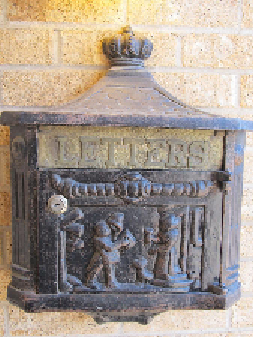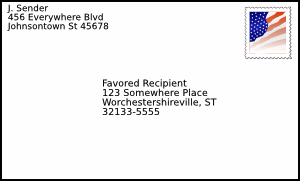
What is a demand letter? Am I legally

A demand letter is correspondence that states that you are potentially infringing the claims of a patent and requesting that you pay for a license to use the patented invention. You are not legally required to respond to a demand letter, but in some situations that may be the right course of action. Before deciding, consider your options, described below.
What are my options?
You have several options for responding to a demand letter:
- You may respond by requesting more specific evidence as to why the patent owner believes you are using patented technology without a license. Note that the sender of the letter is not legally obligated to respond to your request, or to respond adequately, but even a non-response may be valuable in helping you to determine your next steps. If you have a basis for doing so, you may also respond to the letter and deny infringement.
- You may elect to not respond to the letter or any follow-up letters. Some patent demand letters are sent in the hope that some recipients will be misled or intimidated into paying for licenses even though they do not need to do so. Those who believe that the claims contained in a letter are without merit have in many cases selected not responding to it as their best course of action. Doing nothing carries some risk, however, because if you are later found liable for infringement, the court may determine that you acted recklessly and subject you to up to three times the monetary damages.
- You may negotiate with the patent owner for a license to use the patent on mutually agreeable terms, or to obtain an agreement that you do not infringe the patent.
- You may want to explore suing the patent owner for a declaratory judgment stating that you do not infringe the patent claims, or that one or more of the patent claims are invalid.
A patent attorney can help you decide between these options and how to implement them.
The basis of the demand letter appears to be my use of another’s product. How can that be, and what should I do?
A patent owner has the right to exclude others from making, selling, offering to sell, importing or using a patented invention. Thus, you may be liable for infringement due to your use of someone else’s technology. If the letter states that you are infringing because you are using or selling a certain kind of product or system, and you obtained that product or system from a business such as a software vendor or other supplier, you may write to that vendor or supplier and ask for help. They may, for example, respond to the letter on your behalf, provide legal assistance, or step in to protect you against the patent owner. You remain free to pursue the other options described above as well.
You may also consider changing the way that you use the product. You will have to analyze the patent to determine what steps you can change to avoid the legal dispute. The advice of a patent lawyer may be of assistance in making this determination.
Does receiving a letter from the patent owner mean that I’m being sued, or will be?
Receiving a letter, without more, does not mean that you have been sued. If a lawsuit is filed against you, the patent owner must serve two documents on you: (1) a document called a “complaint,” which explains the accusations made against you; and (2) a document called a “summons.” A “summons” is issued by the clerk of the court, identifies the court in which you have been sued, such as “Southern District of Indiana” or “Western District of Virginia,” and contains a “civil action number.” A civil action number, such as 14-cv-12345, combines the year the case was filed with a unique identifying number assigned to the case by the court in which the lawsuit was filed against you. All of the United States District Courts use Form AO 440, which is a standardized summons form. Service is usually made by delivering the documents to you personally, or by delivering the documents to a registered agent for your business. Because of this service requirement, you will usually know when you have been sued.
How can I find out more information about the patent and who is behind the demand?
You can search on the United States Patent and Trademark Office (“USPTO”) website or a commercial website for a specific patent number and then download a PDF copy of the patent. The Resources section of the USPTO website also lists USPTO and other sites that can tell you who is listed as the registered owner of the owner and patent portfolio of the patent holder. You can also check Secretary of State records, your State Bar, the internet, and related sources for information about the entity or attorney sending letters.
Practice Tip: If you think the demand letter is deceptive, predatory, or in bad faith, you may consider filing a complaint with your state attorney general’s office, the state bar where the attorney who signed the demand letter is licensed to practice, or the Federal Trade Commission. You may request that the authorities keep the demand letter in confidence if no action is to be taken.
The information presented on this site does not constitute legal advice. It should not be considered to replace advice from an intellectual property attorney.
 Indiana Intellectual Property Law News
Indiana Intellectual Property Law News

